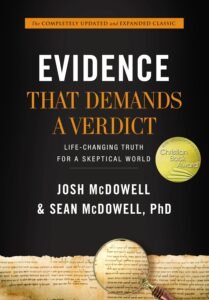There is a popular misconception that faith and reason are mutually exclusive. There are certainly some who think that religion and science are incompatible, but for many people, science is just another way to understand God.
To offer further food for thought, here are three famous scientists who blended science and theology.
Nicolaus Copernicus (1473–1543)
You may know the name Nicolaus Copernicus because he is credited with the model of heliocentrism—the idea that the planets revolve around the sun, which opposed the popular contemporary belief that the Earth was at the center of the solar system. While this was his greatest accomplishment, Copernicus was also a dedicated and respected churchman.
In addition to being an astrophysicist and a doctor, Copernicus was a church administrator and had a doctorate in canon law. In fact, church officials approached Copernicus for help in setting the calendar around which the church placed holy days.
- NEW YORK TIMES BESTSELLER! OVER 5 MILLION COPIES SOLD!Is there credible evidence that Jesus of...
- In this revised and updated bestseller, The Case for Christ, Lee Strobel cross-examines a dozen...
It’s true that the church initially rejected heliocentrism, but so did most scholars of the time. Copernicus himself admitted in his books that his idea made sense in calculations but raised many other questions to which he didn’t have the answers. In the dedication of his book, he wrote:
“I realize that the conceptions of a philosopher are placed beyond the judgment of the crowd, because it is his loving duty to seek the truth in all things, insofar as God has granted that to human reason.”
Nicolaus Copernicus, On the Revolutions of Heavenly Spheres (Trans. Charles Glenn Wallis), Prometheus Books, 1995
Gregor Mendel (1822–1884)
Gregor Mendel was the abbot of an Augustinian monastery, but that’s not why he’s remembered. Like Copernicus, Mendel practiced his faith through prayer as well as through discovery. In addition to being a devoted monk, he was also a mathematician who studied biology and weather.
Using monastery gardens, Mendel conducted experiments that led to his “cell theory of fertilization”—the idea that a new organism had genetically inherited traits biologically passed from its parents. This idea contributed to Darwin’s theory of evolution, but its greater achievement was the system Mendel used to conduct and present his experiments.
Georges Lemaître (1894–1966)
Lemaître was a doctor, but not a doctor of the church. Rather, he had a PhD in physics from MIT. He was also a priest and a veteran artillery officer. As with Mendel, it is not his religious duties but his scientific accomplishments that endear him to history.
Lemaître was one of many scientists of the time who, with increasingly intricate telescopes and robust records, noticed that objects in space were moving farther away from each other. Other scientists had proposed that the universe was expanding, but no one seemed to know why.
It was Lemaître who suggested that the universe was expanding because it had once been a single point that burst into being and had never ceased exploding.
Copernicus had suggested something completely new, and Mendel proved something that many people had already guessed. Lemaître landed between them.
His theory is now popularly referred to as the Big Bang Theory. While many Christians today can’t reconcile the Big Bang with the book of Genesis, Lemaître didn’t see it as a problem, saying:
“As far as I can see, such a theory remains entirely outside any metaphysical or religious question. It leaves the materialist free to deny any transcendental Being…For the believer, it removes any attempt at familiarity with God…It is consonant with Isaiah speaking of the hidden God, hidden even in the beginning of the universe.”
Georges Lemaître
Where Is the Problem?
Some people use religion as an excuse to ignore science. Some people use science as an excuse to ignore religion. Most Christians, not least of all these three notable historical figures, see no issue between God as revealed in the scripture and God as revealed through natural science.









![In His Image by Jen Wilkin [Book Review]](https://christpulse.com/wp-content/uploads/2024/10/61MjIOQcqzL._SL1500_-672x1024.jpg)
![The Freedom of Self Forgetfulness by Timothy Keller [Book Review]](https://christpulse.com/wp-content/uploads/2024/10/81d66nQwKTL._SL1500_-e1729059953717-678x1024.jpg)
![The God I Never Knew by Robert Morris [Book Review]](https://christpulse.com/wp-content/uploads/2024/10/71hJU7TtmCL._SL1200_-685x1024.jpg)
![Risen Motherhood: Gospel Hope for Everyday Moments [Book Review]](https://christpulse.com/wp-content/uploads/2024/10/71cpHIjWJ4L._SL1500_-769x1024.jpg)
![The Case For Christianity By C.S.Lewis [Book Review]](https://christpulse.com/wp-content/uploads/2024/04/415022.jpg)






Leave a Comment